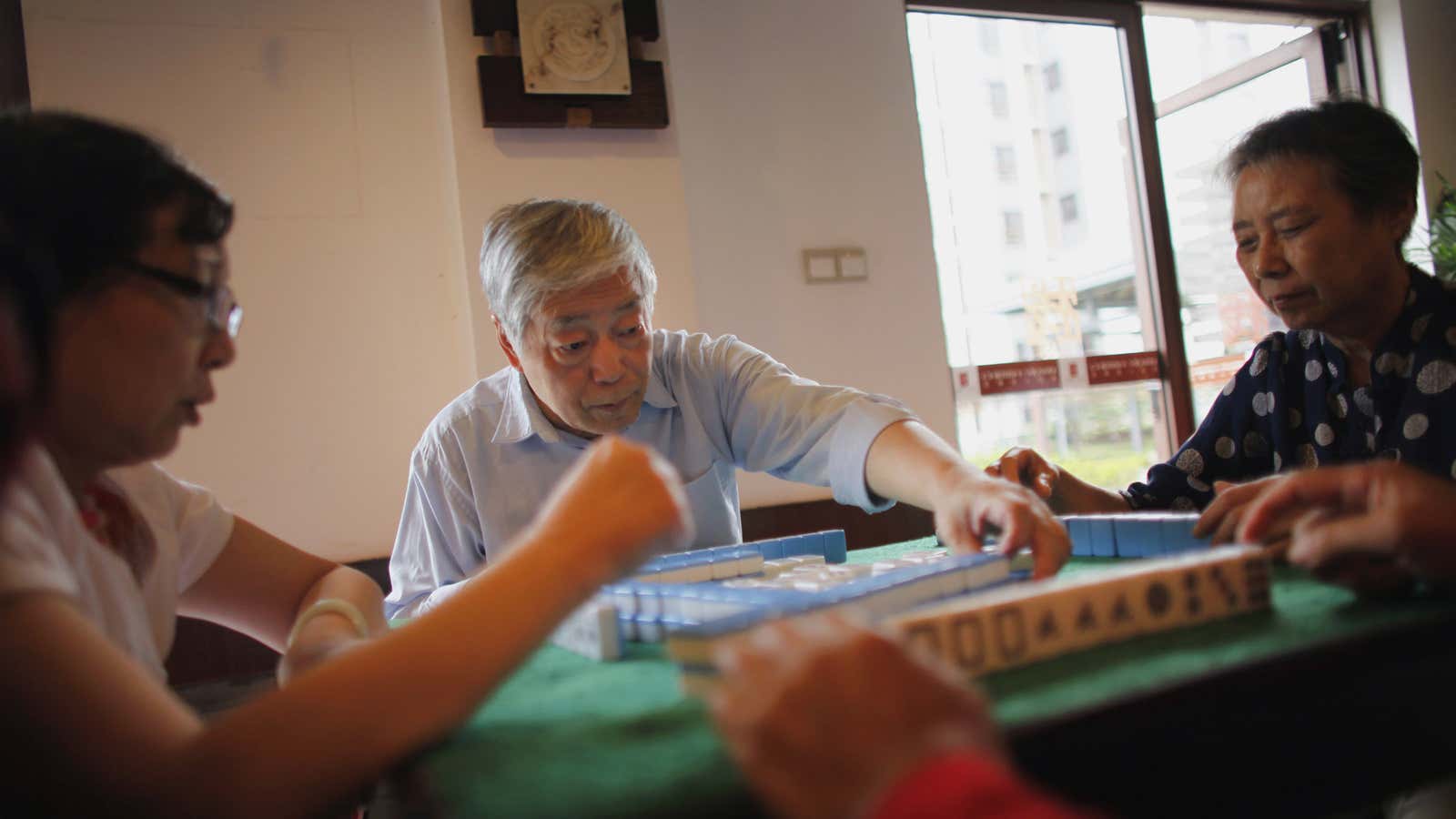There are already 200 million elderly people in China, and by 2050, a third of the population—437 million people—will be over 60 years old. Traditionally, elderly Chinese have been taken care of by their extended families, but the one-child policy means that a typical married couple might eventually have to take care of four elderly parents on their own.
To deal with the looming demographic problem, the government is advocating a “nine-seven-three” policy: 90% of China’s elderly population should be cared for by their adult children, the state will tend to 7%, and private health care businesses will take care of 3%.
That suggests a potential population of more than 13 million elderly, relatively affluent customers, which has many real estate and healthcare investors sensing a prime business opportunity. Still, developers will still have to overcome families’ hesitance to ship their parents or grandparents off to a western-style nursing home or assisted living center—unless, perhaps, everyone can stay together after all.
“Every international private investor is salivating,” Pascal Scott, CEO of M Health China, told Quartz. “But an out-of-town development misses the point—it can be as luxurious as you want but no one will choose to live there if they can live comfortably with their family instead.”
To solve that dilemma, Scott’s firm plans to build a multi-generational mini-city for 30,000 people in the southwestern megacity of Chongqing. There will be 30-story high rises designed with the elderly in mind, light rail access, shops, a hospital for the very infirm—and, crucially, a primary school, middle school, and secondary school. And all of this within commuting distance of Chongqing’s central business district.
Some of the apartments are designed to have adjoining doors between units, to offer privacy and convenience, while others will have shared kitchens. “The point is that the family can see each other any time, cook and eat together—this is a crucial part of family life in China,” Scott said. “Our thought is that if people don’t want to send their parents away, then we build a community the whole family can live in.”
M Health specializes in building healthcare facilities around the world, including many in developing countries such as Indonesia, Thailand, and Nigeria. It doesn’t have any existing projects in China, but has partnered with “a major Chongqing developer” and plans to sign a deal with the provincial government in the next several weeks, Scott said. The company plans to break ground by year-end, take pre-orders for the housing units in 2015, and start moving people in by 2018.
A number of other international developers are also planning large developments to house the elderly. As the Wall Street Journal reported last year,the Seattle-based developer Columbia Pacific has teamed with Chinese firms to open facilities in Beijing’s Yizhuang district and in Shanghai, while a joint venture between the developer Related Cos and senior-housing operator Merrill Gardens are building units in Shanghai, Harbin, and Suzhou. The Merrill Gardens Related complex will have a “restaurant, hair salon, game rooms, a theater, a medical clinic and rehabilitation room,” according to the Journal—but it won’t have an elementary school.
